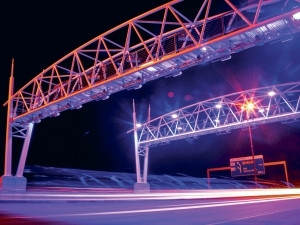
The SA National Roads Agency (Sanral) has urged South Africans to respect the judiciary in the wake of what it says are "recurrent and unfounded attacks" on the Gauteng Freeway Improvement Project, the multibillion-rand project e-tolling was created to fund.
Sanral CEO Nazir Alli made a statement in the state-owned agency's recent annual report, saying: "We must respect the courts and a call to disregard the judgements of the courts bodes ill for our collective future."
In a media statement today, Sanral said: "The continued inflammatory statements by the detractors of the project [have] led to the threats of physical harm to workers that traumatised innocent people."
Alli points out the Supreme Court of Appeal and the North Gauteng and Western Cape High Courts had ruled in favour of Sanral - a fact he says vindicates Sanral's use of the user-pay principle and goes to show the agency had acted lawfully at all times.
He characterises as "regrettable" the actions of those who he says are delaying the implementation of the Wild Coast and Winelands projects in the Eastern and Western Cape.
"It is unfortunate that those delaying the Wild Coast project do not see the link with the job losses in the mining sector and the deepening poverty in the areas which the road is intended to traverse."
Sanral reiterates its mandate is to finance, improve, manage and maintain the national road, and says "several huge capital projects" are in prospect for the coming year.
Alli says, over the past 16 years, the roads under Sanral's jurisdiction have grown from about 7 200km to 21 403km of proclaimed national roads, "85% of which are funded from tax-based revenues".
He says the public purse cannot be relied on in light of the growing demand for better roads, constrained financial resources and a growing backlog, hence the need for the user-pay principle for the other 15% of the proclaimed national roads.
"It is an equitable way to ensure the supply of economic infrastructure. On the one hand, charges directly reflect usage of the tolled roads in a way that taxation or a fuel levy cannot. On the other, we can use technology to target those users, such as public transport and emergency services, which should be exempt from the payment of tolls."
Anti-toll factions have repeatedly slated government's notion that the user-pay principle is the only fair route to take.
Share